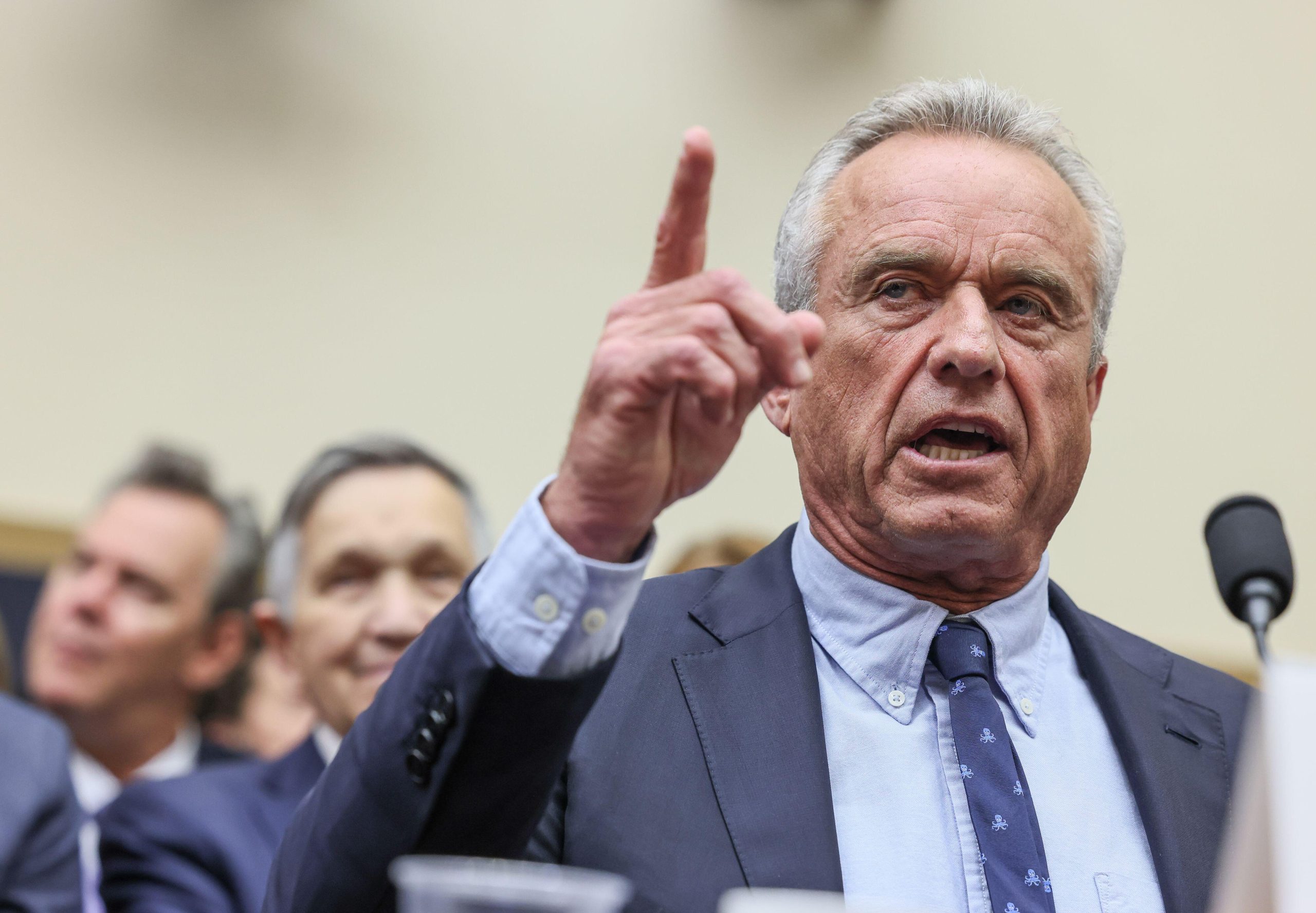In the age of online information, it can feel harder than ever to stay informed. As we get bombarded with news from all angles, important stories can easily pass us by. To help you cut through the noise, every Friday Index will publish a weekly news roundup of some of the key stories covering censorship and free expression from the past seven days. This week, we cover El Salvador’s plan for a prisoner swap and look at how Hungary has been placed on an EU watchlist.
Political prisoners: Bukele condemned by families of American deportees for Venezuela swap plan
Last week, the Donald Trump administration once again made headlines for wrongfully deporting Maryland resident Kilmar Ábrego García to a jail in El Salvador, and failing to facilitate his return. The president of El Salvador, Nayib Bukele, has become a prominent figure in this story, aligning himself with Trump and stating that he “does not have the power” to return Garcia to the USA – a claim that experts say is false.
Now, Bukele has proposed a deal to send 252 Venezuelans incarcerated in El Salvador (following deportation from the US) back to their home country, in exchange for Salvadoran “political prisoners” currently held in Venezuela. President Nicolas Maduro has stated that the Venezuelan nationals held in Salvadoran prisons were “kidnapped”, while Bukele has accused Maduro of imprisoning political opponents and activists.
These Venezuelans, many of whom are believed to have no criminal background and were deported on evidence as spurious as having tattoos, have now become pawns in a game of politics – which both their families and human rights groups alike have denounced. Nelson Suárez, whose brother is among those Venezuelans imprisoned in El Salvador, told The Guardian that he feels his brother is being treated “like political merchandise”.
Under surveillance: Hungary clashes with EU over use of facial recognition tech for LGBTQ+ Pride attendees
Last month, Hungary passed a law that banned LGBTQ+ pride marches in the country, with Hungarian Prime Minister Viktor Orbán stating that he “won’t let woke ideology endanger our kids.” This move sparked outrage, with opposition leaders lighting flares in parliament and demonstrators taking to the streets of Budapest. Now, one aspect of the law has drawn further ire.
The new legislation allows the use of biometric cameras by police for facial recognition and tracking of LGBTQ+ demonstrators and those attending Pride gatherings, which Politico reports could be in breach of the EU’s newly adopted Artificial Intelligence (AI) Act.
The European Commission is currently investigating whether this is the case, which has increased existing tensions between the EU and Hungary’s leadership.
This is just the latest threat to democratic rights in Hungary – last week, parliament rushed through a bill to allow passports of dual citizens to be revoked if they are perceived to have acted “in the interest of foreign powers” and to have “undermined the sovereignty of Hungary”. The bill’s passing through parliament has drawn fears about how it could be abused to strip dissenters of their citizenship.
AI deep fakes: False videos of James Bulger circulate on social media
While AI is being used against the public in Hungary, closer to home in the UK, public-generated AI videos have taken a concerning new turn – social media content creators are using AI to create “avatars” of murder victims describing their own deaths.
One harrowing example includes depictions of James Bulger, the two-year-old boy who was abducted and murdered in 1993. Fake videos are being generated that portray Bulger himself describing the details of the crime – content which Bulger’s mother, Denise Fergus, has described as “absolutely disgusting”.
Fergus is pushing for a new law to be passed that would prohibit the creation and sharing of this sort of AI content. Such videos are becoming increasingly prevalent online, with some accounts creating likenesses for multiple murder cases.
Index’s CEO Jemimah Steinfeld spoke to the BBC this week, stating that these videos already break existing laws, and that there is a concern that further regulation could restrict legitimate, legal content.
Steinfeld said that while we should “avoid a knee-jerk reaction that puts everything in this terrible box”, she sympathises with Fergus. “To have to relive what she’s been through, again and again, as tech improves, I can’t imagine what that feels like.”
Imprisoned for a hashtag: Algeria clamps down against peaceful online activism
Amnesty International has condemned the Algerian government for its continued moves to repress online activism within the country.
The organisation reports that at least 23 activists and journalists have been arrested and convicted for human rights activism and protests over the past five months, with a focus on the use of the hashtag “Manich Radi” (“I am not satisfied”), which first came to prominence in December 2024.
The hashtag started being used after the fall of Bashar al-Assad’s regime in Syria, with many Algerians reportedly drawing similarities between the situations in Syria and Algeria and becoming hopeful of a fight for democracy in their nation.
But Algerian authorities responded to this with swift arrests, and have continued their campaign against those posting the hashtag. Algeria’s President Abdelmadjid Tebboune said of the online movement: “Let no one think that Algeria can be devoured by a hashtag”.
Academic asylum: American professors seek refuge in Canada
Hundreds of Canadian professors have urged the Canadian government to open its doors to “academic refugees” from the USA amid President Trump’s attack on universities and education.
CTV News reported this week that more than 500 Canadian university faculty members had signed an open letter calling for greater funding to Canada’s higher education system and programmes to allow more foreign professors and academics to resettle in the country, to fight the “rising anti-intellectualism” in the USA.
This follows a continuing stream of reports of American academics looking to seek exile in Canada as their professions come under fire by the Trump administration. Many US universities have seen increasing restrictions, most notably Harvard University, which is currently locked in a major funding dispute with the US federal government. The university’s president Alan Garber told NBC that he is “very concerned about Harvard’s future”.
University professors across the country are equally as concerned about the future of education in the USA. One such professor is Jason Stanley, professor of philosophy at Yale University. Stanley, who has written multiple books about fascism, recently accepted a position at the University of Toronto. He told the Daily Nous that he was leaving the USA to “raise my kids in a country that is not tilting towards a fascist dictatorship”.





